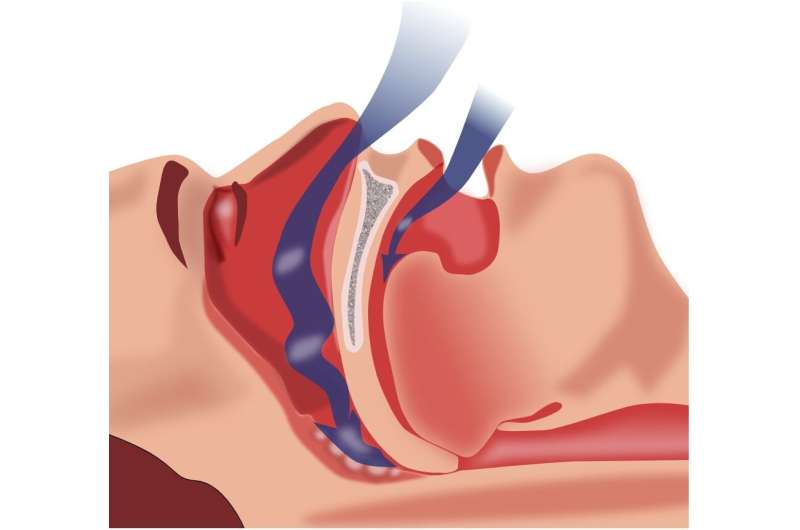
Dr. Virend Somers, a Mayo Clinic cardiologist with a focus on sleep apnea, says it’s a serious medical condition that can cause heart problems and other health issues. Dr. Somers co-authored a study published in the Journal of the American College of Cardiology on the treatment of obstructive sleep apnea and its impact on cardiovascular disease.
Obstructive sleep apnea occurs when a person stops and starts breathing while asleep. It happens because the throat muscles relax and block the airway.
“The tongue can fall backwards and can obstruct the airway, causing either snoring or obstruction,” says Dr. Somers.
When a person is breathing normally, their blood oxygen saturation level is usually between 95% and 100%. Dr. Somers says obstructive sleep apnea can drop that oxygen level down to as low as 70% or 60%. It can cause high blood pressure and strain your cardiovascular system, increasing the risk of heart problems.
“What we can do is give you an oxygen monitor to wear at home and look at the oxygen tracing. And if it looks problematic, then you can have a sleep study,” he says.
If you’re diagnosed with sleep apnea, treatment may include weight loss; a continuous positive airway pressure machine, or CPAP; a mouthpiece designed to keep the throat open; postural therapy to prevent you from sleeping on your back; or even surgery or implanting a device that stimulates the airway to be more open during sleep.
More information:
Apoor S. Gami et al, Obstructive Sleep Apnea, Obesity, and the Risk of Incident Atrial Fibrillation, Journal of the American College of Cardiology (2007). DOI: 10.1016/j.jacc.2006.08.060
2024 Tribune Content Agency, LLC.
Citation:
What happens to your body when you have obstructive sleep apnea? (2024, October 10)
retrieved 16 October 2024
from https://medicalxpress.com/news/2024-10-body-obstructive-apnea.html
This document is subject to copyright. Apart from any fair dealing for the purpose of private study or research, no
part may be reproduced without the written permission. The content is provided for information purposes only.


